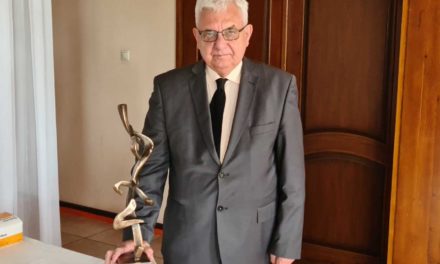According to László Tőkés, president of the Transylvanian Hungarian National Council (EMNT), the further decline of Transylvanian Hungarians can only be avoided by asserting their community rights.
In the document delivered to MTI on Friday, the president of the EMNT stated: the Transylvanian Hungarian population has halved in a hundred years, its decline has accelerated in the last three decades, so it must face the fact that it has become an endangered ethnic group, just like the other parts of the nation across the border.
"But we should not be afraid, nor should we be frightened, because it would lead to self-giving up and certain failure. We have to organize our ranks and organize ourselves for work and construction. There is only one answer to Trianon, to our current fallen state: the assertion of our community rights, autonomy. We still owe the Romanian revolution of 1989 the change in the minority system - we cannot renounce this"
- wrote László Tőkés, emphasizing that 2024 is an election year in Romania.
In his press release, he assessed Prime Minister Marcel Ciolacu's labeling of the Hungarian autonomy drafts as "revisionist" and "toxic initiatives" as a deliberate misrepresentation of the Romanian people and anti-Hungarian incitement.
According to László Tőkés, the prime minister's statement that "Romania's sovereignty and territorial integrity cannot be subject to negotiation" is sheer insinuation, because the draft autonomy laws of the EMNT and the Székely National Council do not threaten the "sovereignty and territorial integrity of Greater Romania".
"We only want what is rightfully our Transylvanian Hungarian community's right in a democratic society (...) in the words of Károly Kós, we want nothing more and nothing else than what the sanctioned law of Romania promised us of its free will: the Gyulafehérvár decision, namely national autonomy"
- said the president of the EMNT, adding: the century that has passed since Trianon was not enough for Romania to enact the minority law promised since then, the Bucharest legislature "sabotaged" the adoption of the law, which was most recently passed in 2020 and then in 2021 government program.
László Tőkés addressed the fact that the delegation of the Hungarian Democratic Union of Romania (RMDSZ) in the United States of America in December drew the attention of politicians in Washington to the strengthening of "the Association for the Unification of Romanians (AUR) with its extreme, populist, legionary rhetoric" as a phenomenon that seriously threatens Transylvanian Hungarians and Romania. He believed that the statement is correct, but the reality also includes the fact that the visceral anti-Hungarianism reminiscent of the time of National Communism is more or less the property of the entire Romanian political class.
"Declaring the AUR a scapegoat diverts attention from the nationalist establishment of the Romanian state, namely the former government coalition partners of the RMDSZ, or indeed President Klaus Iohannis, who assist the spread of Hungarianophobia in Romania by complicit silence or action.
It must be understood that the victim can never be an ally of the perpetrator, just as he must not walk unsuspectingly into the trap of Stockholm syndrome.
Being a minion of the social democratic-national liberal coalition based on common looting would mean giving up our national values and interests for the sake of party interests," warned the president of the Transylvanian Hungarian National Council in his New Year's announcement.
MTI
Featured image: Transylvanian Hungarian National Council












